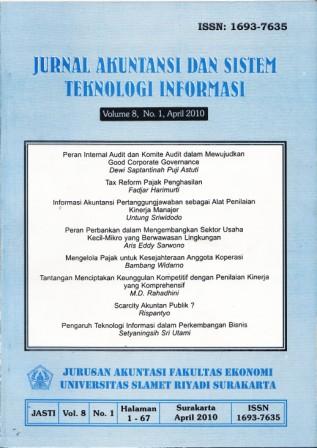SCARCITY AKUNTAN PUBLIK ?
Abstract
AbstraCT
Public accountant is an accountant who worked in Public Accounting Firm (KAP), either as owners or as employees, who provide services to the general public, especially in the field of audit of financial statements made by his client. In order to become a public accountant a person must meet several requirements that have been determined. The requirements are set out in PMK No. 17/2008.
The Indonesian public accountant joined the Indonesian Institute of Certified Public Accountants (IAPI). In FMD 17/2008 explained that the Professional Association of Certified Public Accountants recognized government is IAPI. To date 887 members across Indonesia IAPI consisting of: an active Certified Public Accountants as much as 798 people, and an inactive Certified Public Accountants is 89 people. Certified members spread across 517 offices, including branch offices. When viewed by age, then the productive age less 40 years there are 62 people (77,7%), whereas at the age of 61 years and over are 39,6%. Based on these data, we should be concerned would happen scarcity of public accountants.
Public accounting profession is the only profession people trust to examine the financial statements. Thus, the public accounting profession is actually a promising profession. But the facts show that the profession is increasingly rare in Indonesia.
Â
Keywords: accountant profession, public accountant,
Downloads
Published
Issue
Section
License
Authors who publish this journal agree to the following terms:
- Authors retain copyright and grant the journal right of first publication with the work simultaneously licensed under a Creative Commons Attribution License that allows others to share the work with an acknowledgement of the work's authorship and initial publication in this journal.
- Authors can separately make additional contractual arrangements for non-exclusive distribution published by the journal (e.g., publish it in a book), with an acknowledgement of its initial publication in this journal.
- Authors are allowed and encouraged to send their work via online (e.g., in the institutional repositories or their website) after published by the journal.










